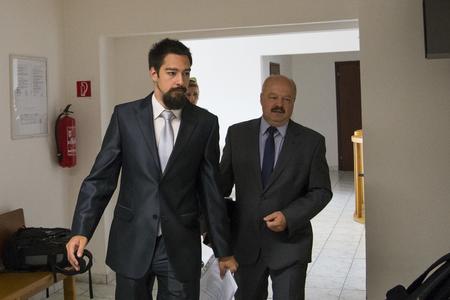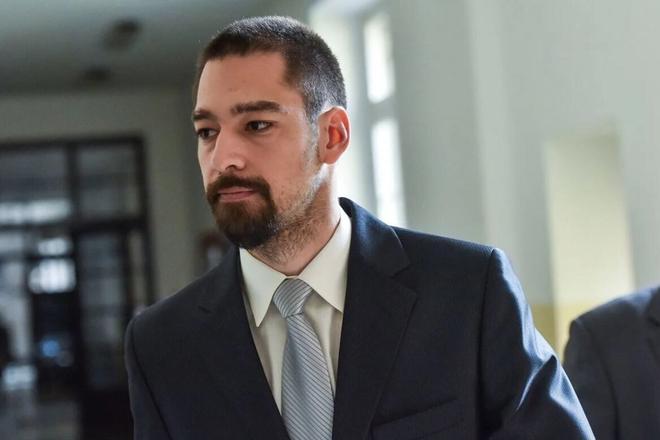Martin Macko, the son of retired general Pavel Macko, may not be the man who attacked women with faeces in 2015, the Supreme Court suggests in its recent decision.
Furthermore, it cites the ignorance of judges dealing with the case in the past.Furthermore, it cites the ignorance of judges dealing with the case in the past.
The police arrested a drunk and drugged Macko on a tram seven years ago, and just one week after the next attack by a man who threw faeces at and urinated on women happened in Bratislava.
Similar attacks continued after Macko’s detention. It took a year to arrest Dušan Seliga, a fitness instructor, who subsequently admitted to carrying out those attacks.
Despite this, Macko’s case has been dragging on to the present day.
On July 4, the Supreme Court ruled that the Bratislava Regional Court will have to decide in the Martin Macko case again. The court thus accepted the request for a review filed by the Justice Ministry. The Supreme Court also annulled the regional court’s decision from 2018 that resulted in the dismissal of Macko’s appeal, explaining that the decision breached the law to the defendant’s disadvantage.
Two useless pieces of evidence
The Supreme Court ruling, in addition, reads that the regional court should overlook some evidence, including the defendant’s confession that Macko made during an early police investigation. He withdrew his confession soon after, claiming that he had been pressured. Macko was still under the influence when he confessed.
For example, the retired general’s son admitted that he had kept faeces in bags and bottles before the attacks. In fact, they were fresh, and several of the victims said during the investigation that the attacker had urinated directly on them.
According to the Supreme Court, the process of showing different men, including Macko, to the assaulted women was moreover unlawfully carried out. Most men selected for the process did not look like Macko, the court has pointed out, which could have made the women point to Macko.
“The two pieces of evidence, which can be labelled as crucial, are unusable,” said Martin Bargel who chairs the Supreme Court senate that decided on the Macko case, as quoted by the TASR news agency.
Judges ignored evidence
In its ruling, the Supreme Court denounces the judges who previously studied Macko’s case for ignoring witness testimonies, the expert’s opinion on Macko’s mental health, the analyses of the urine found on victims, and discrepancies in the descriptions of attacks.
After the arrest and conviction of Seliga in 2016, the Bratislava IV District Court acquitted Macko in February 2017. Judge Ivan Alman then criticised a prosecutor for failing to collect enough evidence that would have linked Macko to any of the attacks.

Still, the prosecutor went ahead and filed an appeal at the regional court.
The same district court found Macko guilty in November 2017 after the regional court cancelled the February 2017 ruling. In the end, Macko was sentenced to eight months in prison and was obliged to undergo medical treatment.
In 2018, the regional court confirmed the sentence, opining drugs could have been the reason why Macko began with the attacks. The Justice Ministry and Macko himself then filed appeals.
“The regional court has completely failed to consider the fact that the attacks in Bratislava continued even after the defendant’s arrest,” Bargel said, as quoted by the Sme daily.



 Martin Macko is the son of retired general Pavel Macko. (source: TASR)
Martin Macko is the son of retired general Pavel Macko. (source: TASR)